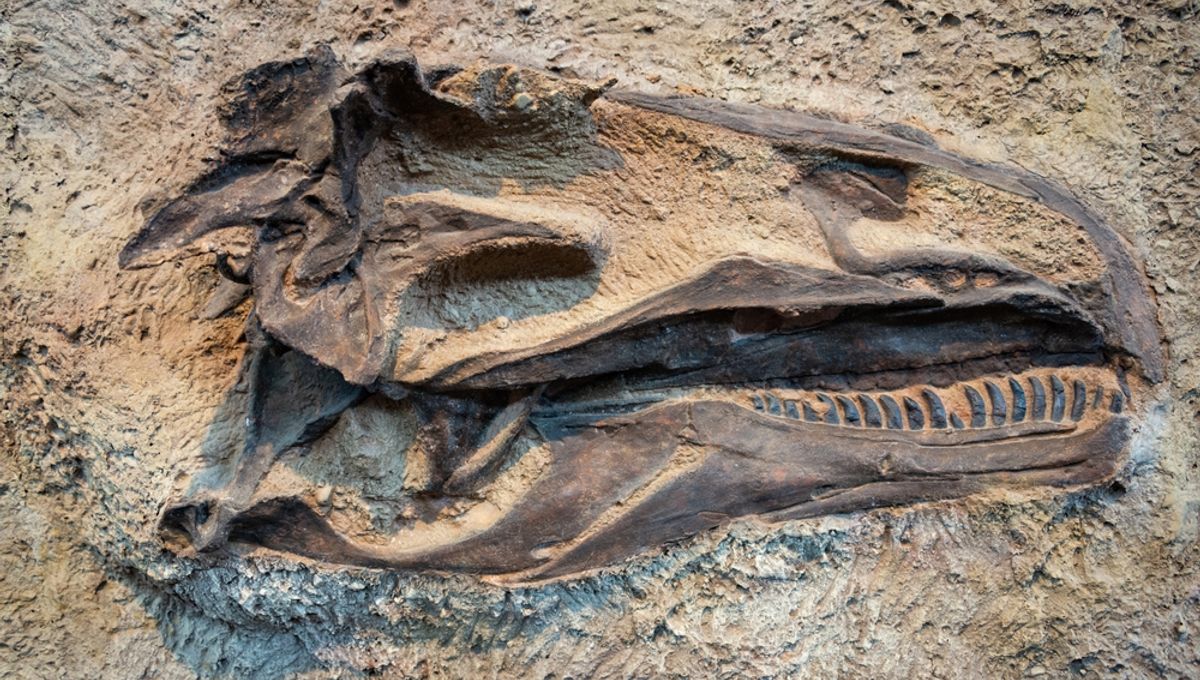
One fateful day around 66 million years ago, a giant lump of rock came hurtling into Earth, bringing the era of the dinosaurs to an abrupt end. While there is debate over what ultimately delivered the final blow – was it volcanoes? Clouds of toxic sulfur? A dense interstellar cloud? – it is widely believed that the Chicxulub asteroid impact triggered a mass extinction event that killed off all (non-avian) dinosaur species.
ADVERTISEMENT
In the years that followed, mammals flourished, inhabiting the space left behind by dinosaurs. But if the dinosaurs had been so successful prior to Chixculub, why did they never re-evolve?
Evolution is a complex process of luck and opportunity. Organisms adapt to their surroundings through a combination of natural selection, sexual selection, and genetic mutations, but there is no guarantee that this will take one particular path.
Dinosaurs successfully evolved over millions of years, adjusting to their environment and becoming the dominant class of animals on the planet. But when all non-avian dinosaurs were wiped out, with them went their evolutionary history. Instead, the species alive today are the descendants of animals that survived the extinction event, including many species of mammals, who were able to reproduce, evolve, and adjust to their new environments.
An extinct species cannot naturally re-evolve to return exactly as it was before it was wiped out – although similar creatures can emerge via iterative evolution, such as what happened with the Aldabra rail.
However, some are pinning their hopes on genomic sequencing to bring animals like the dodo and woolly mammoth back from the dead. Does this mean we could one day create our own Jurassic Park? Even if we were to ignore the warnings of the franchise, the scientific capacity and available genomic data are currently far from sufficient to create an organism as complex as a Velociraptor.
ADVERTISEMENT
There has been some debate among some paleontologists as to whether the reign of the dinosaurs was coming to a close before the asteroid hit, possibly as a consequence of environmental changes – if that was true, it could offer another reason as to why they have not re-evolved. According to a study published in 2016, dinosaur extinctions were already outpacing the number of new dinosaur species emerging. However, more recent research points out that a decline in diversity would not have inevitably led to their demise, and that the temperature timeline leading up to the mass extinction does not support the hypothesis that volcanic eruptions were to blame.
Indeed, while some dinosaurs, like the sauropods, may have been in decline, others were not only doing well but could still be thriving today if not for the asteroid. Perhaps the process of evolution would have altered their appearance and behavior somewhat in the 66 million years that have occurred since. Even then, Nicholas R. Longrich, a paleontologist and evolutionary biologist at the University of Bath, says that dinosaurs’ 100 million year history gives little indication that they would have changed a great deal without Chicxulub’s involvement.
While there is very little chance you will run into a Tyrannosaurus rex or cross paths with a Stegosaurus any time soon, the world was never entirely rid of dinosaurs. Modern-day birds are descendants of a group of dinosaurs called theropods – researchers attribute their survival to their (small) body size, habitat (southern hemisphere, away from the impact), and diet (of seeds).
Source Link: Why Didn’t Dinosaurs Re-Evolve After They Went Extinct?